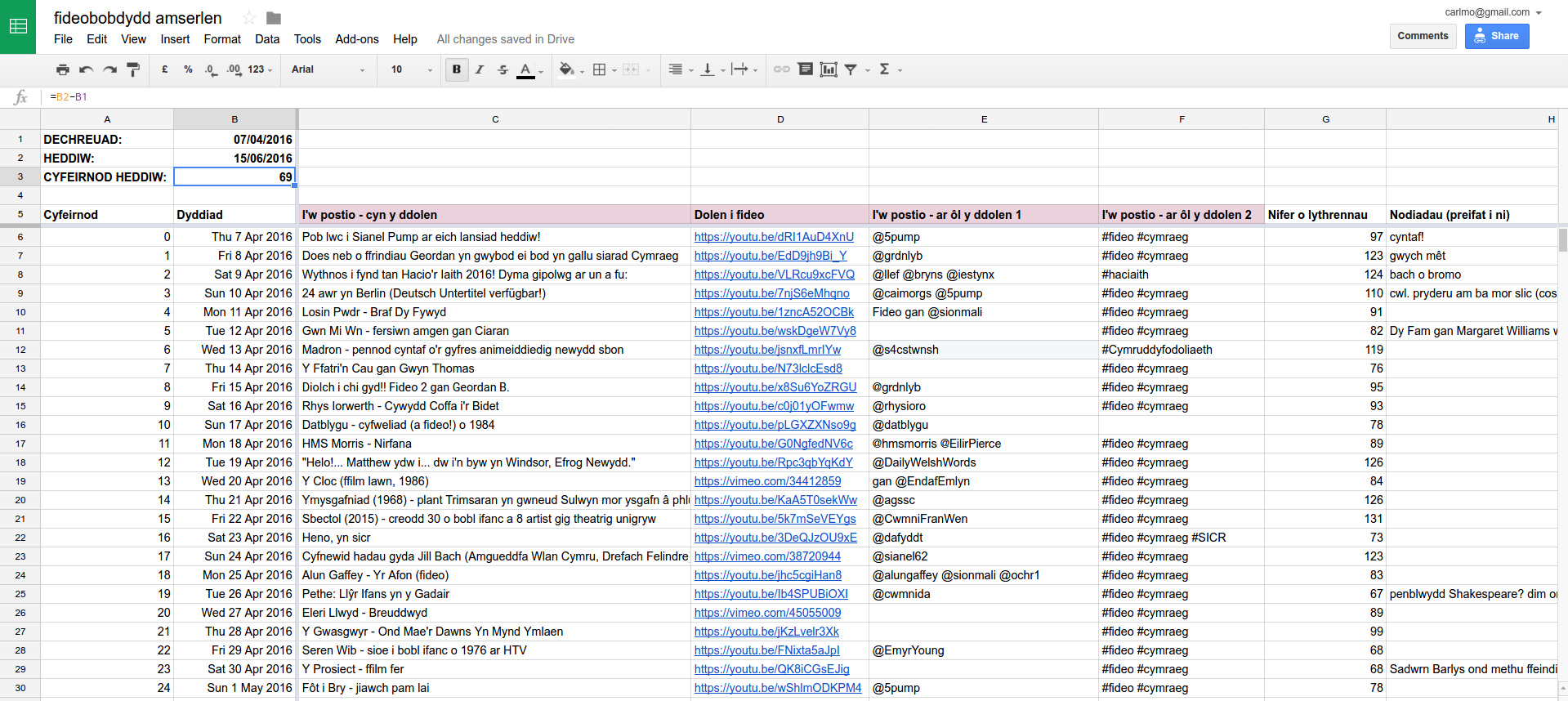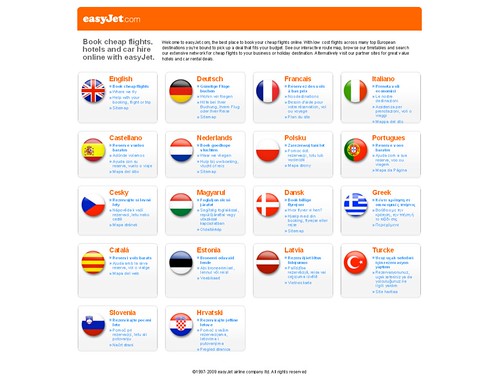I’ve created my own system to tweet a row from this spreadsheet every day.
The name of the Twitter account is @fideobobdydd, a way of sharing high quality videos in Welsh from various genres. Social media like Twitter have the potential to find audiences for videos and vice-versa, when algorithmic search and recommendation sometimes (feel like they) put content in Welsh at a disadvantage. This is what I’d like to investigate, anyway.
At the moment it tweets once per day at a set time. It’s a proof of concept which could easily be extended or adapted.
Why create a system? I’ve tried Hootsuite, Buffer and similar systems but on the whole these are too cumbersome for me. On the spreadhset I can see half a month and move things around quickly. Working with others is easy because the spreadsheet is on Google Drive.
I doubt that Hootsuite as a company is losing sleep over it. It’s just my homebaked solution to a particular problem. 🙂
It would be possible to add other sources rather than relying on manual input of videos. At the moment if there is a gap on any given day, there is no tweet. I could create a long list of videos to post randomly as well as the spreadsheet list, or syndicate videos from a list of favourites or YouTube playlist, and so on. Of course other platforms like Facebook Video are also possible.
Here’s some technical info. This is a PHP script which talks to the Twitter API. Rather than use the Google Drive API I have done a speedier implementation of retrieving the content as CSV.
Diolch i Nwdls am y (cy)syniad gwreiddiol o Fideo Bob Dydd.


